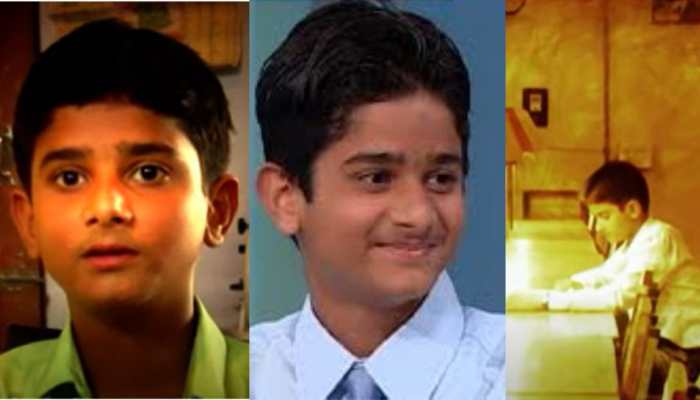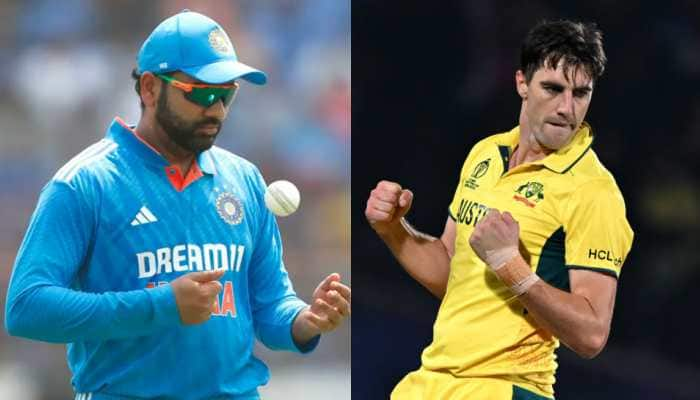Eye Health: Glaucoma Causes, Preventive Care, Early Intervention And Treatment
Nearly 1.2 million Indians suffer from irreversible blindness caused due to glaucoma. Experts share the symptoms, prevention and treatment of this condition and what causes it.
Trending Photos
) • More than 90 percent of cases of glaucoma remain undiagnosed in the community
• More than 90 percent of cases of glaucoma remain undiagnosed in the community Eye health and care: Glaucoma is an eye condition that, if ignored, can lead to permanent blindness. The optic nerve, which carries visual information from the eye to the brain, is harmed by the condition. If left untreated, glaucoma can cause a gradual loss of peripheral vision and finally result in blindness. Glaucoma normally advances gradually over time.
A condition referred to as elevated intraocular pressure (IOP), which is one of the leading causes of blindness, and is frequently diagnosed in people over the age of 60, is one type of glaucoma caused by pressure inside the eye. Low brain pressure may increase the risk of having this condition.
As per the National Health Portal," Globally, glaucoma is the second leading cause of blindness after cataracts. It is estimated to cause blindness in 4.5 million people worldwide, whereas, in India, out of 12 million people who are suffering from glaucoma, 1.2 million people are blind owing to this disease as per 2012 statistics. Despite this, glaucoma is largely undiagnosed, with more than 90 per cent of untreated cases. It has become a growing cause of concern for the country. Being a progressive and irreversible condition of blindness, early detection and management is of utmost importance."
Signs and symptoms of glaucoma
Glaucoma damage is irreversible, so you need early detection and treatment to prevent blindness.
With any type of glaucoma, you may experience:
- Eye pain or pressure.
- Headaches.
- Rainbow-colored halos around lights.
- Low vision, blurred vision, narrowed vision (tunnel vision) or blind spots.
- Nausea and vomiting.
- Red eyes.
Dr JC Das, Sr. Most Glaucoma Specialist says, “The present awareness and knowledge on glaucoma should be amplified further to ensure that people include eye check-ups in their routine health examination. A patient should visit an ophthalmologist as soon as they start experiencing mid symptoms like eye pain or blurry eyes. This will lead to the early intervention by an ophthalmologist and adoption of a suitable treatment regimen on time.”
Also Read: How Can Diabetes Cause Blindness- Can Diabetic Retinopathy Be Reversed? Expert Answers
What causes glaucoma?
Glaucoma can develop without any known cause, but several things can influence it. Intraocular eye pressure is the most crucial of these variables. Aqueous humour, which is produced by your eyes, feeds them. This liquid passes through your pupil to the front of your eye. The fluid leaves your eye through the drainage canals between your iris and cornea in a healthy eye.
What are the risk factors for glaucoma?
Dr Suneeta Dubey, Medical Director, Director of Glaucoma Services, and Chairperson-Quality Assurance at Dr Shroff's Charity Eye Hospital talks about the common risk factors of glaucoma, “Various factors can contribute to the development of glaucoma. In general, an average individual has a 2.3% risk of developing glaucoma in his/her lifetime. However, certain factors can significantly increase the risk of developing glaucoma."
"One of the most significant risk factors is genetics, as individuals with a parent or sibling with glaucoma have a ten-fold increased risk of developing the disease. Other factors that may increase the risk of developing glaucoma include having other medical conditions such as short- or long-sightedness, high blood pressure, diabetes, or having undergone certain eye surgeries. Age is also a significant risk factor, with the risk of glaucoma increasing significantly after the age of 60. Another very important factor is the use of steroids as an eyedrop or systemic use. By understanding the various risk factors associated with glaucoma, individuals can take proactive steps to reduce their risk,” Dr Suneeta further mentions.
Preventive care for glaucoma
The best way to preserve your eye health and stop vision loss is through early glaucoma screening through routine eye exams.
Further vision loss can be prevented with appropriate and timely treatment. Regular preventive eye exams with an ophthalmologist are advised.
Adding to the measures to be taken, Dr Deven Tuli, Senior Consultant of Glaucoma at the ASG Narang Eye Center in New Delhi, said “Even though there is no preventive treatment for glaucoma except regular eye exams, you can follow certain measures to manage your eye health. It involves taking vitamins and minerals necessary for good eye health (such as zinc, copper, selenium and vitamins A, C, and E), exercising appropriately (after consulting your doctor), limiting caffeine intake, drinking plenty of fluids, sleeping with your head raised and strictly adhering to your medication schedule.”
Early detection and treatment of glaucoma
Untreated glaucoma can lead to the rapid development of permanent vision loss or blindness. Therapies can prevent more eyesight loss, but they cannot make up for it. If you experience eye pain, excruciating headaches, or vision issues, it's crucial to see an eye doctor as soon as possible.
It is essential to emphasise the necessity of yearly eye exams to detect glaucoma early and prevent visual loss. Highlighting the importance of timely intervention, Dr Rishi Jain, Medical Director, Allergan an AbbVie Company said “Early detection is key to prevent vision loss, as once lost it cannot be reversed. Visit an ophthalmologist at least once every two years to get your eyes checked."
"The early symptoms of glaucoma are normally detectable during an eye exam by an optometrist or ophthalmologist. Tonometry, ophthalmoscopy, and perimetry are simple tests for detecting increased eye pressure (tonometry), optic nerve damage (ophthalmoscopy), and vision loss (perimetry). Additionally, your doctor may perform other procedures, such as gonioscopy and pachymetry, which measure the angle between the cornea and iris.”
When to consult a doctor?
You should call your family doctor or any healthcare professional if you experience:
- Blurred or low vision.
- Halos, eye floaters or flashers.
- Sudden, severe eye pain or headaches.
- Sensitivity to light.
- Vision loss.
Stay informed on all the latest news, real-time breaking news updates, and follow all the important headlines in india news and world News on Zee News.
Live Tv







)
)
)
)
)
)
)
)
)
)
